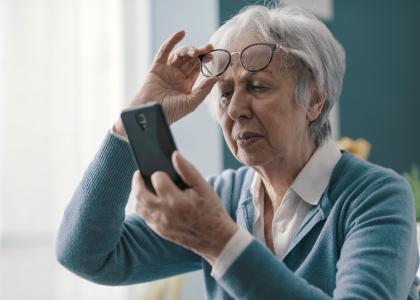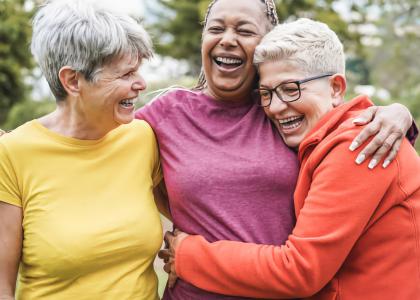NOT-MH-20-053
Southwest Health Equity Research Collaborative

The overarching goals of the project are to (1) document impacts of relaxed restrictions for telemedicine and mHealth; and (2) assess implementation of MAT “take-homes” for people in substance use disorder treatment in rural, underserved, and minority communities in Arizona in the wake of COVID-19.
Defining Trajectories of Linguistic, Cognitive-Communicative and Quality of Life Outcomes in Aphasia

This project aims to examine the effect of COVID-19 on telerehabilitation access and the cognitive-communicative and psychosocial health outcomes for patients with aphasia.
CV Wizard: Does a Prioritized, Point-of-Care Clinical Decision Support Tool Improve Guideline-Based CVD Risk Factor Control in Safety Net Clinics?

This project will assess virtual care's impact on cardiovascular disease risk management in community health centers and the role of patient-facing clinical decision support tools during the pandemic. Specifically, it investigates how the shift to virtual care (VC) affects cardiovascular disease (CVD) risk management; the shift’s impact on existing health disparities in vulnerable populations; and whether CVD care in VC can be enhanced by the use of patient-centered clinical decision support tools.
Chukka Auchaffi’ Natana: The Weaving Healthy Families Program to Promote Wellness and Resilience and Prevent Alcohol and Other Drug Abuse and Violence

The overall objective of the project is to test the efficacy of the community-based, “Weaving Healthy Families program (WHF)”, which aims to prevent, reduce, and postpone the secondary health effects of COVID-19, while promoting resilience and wellness (including mental health) among Native American adults and youth.
Efficacy of a Healthy Lifestyle Intervention to Prevent Depression in Older Spousally-bereaved Adults-Supplement

This proposed Administrative Supplement aims to increase the reach, uptake, and sustainability of our existing behavioral-health intervention to accommodate older spouses bereaved by COVID-19 who are seeking prevention and self-management strategies to manage psychiatric symptoms both during and following the pandemic.